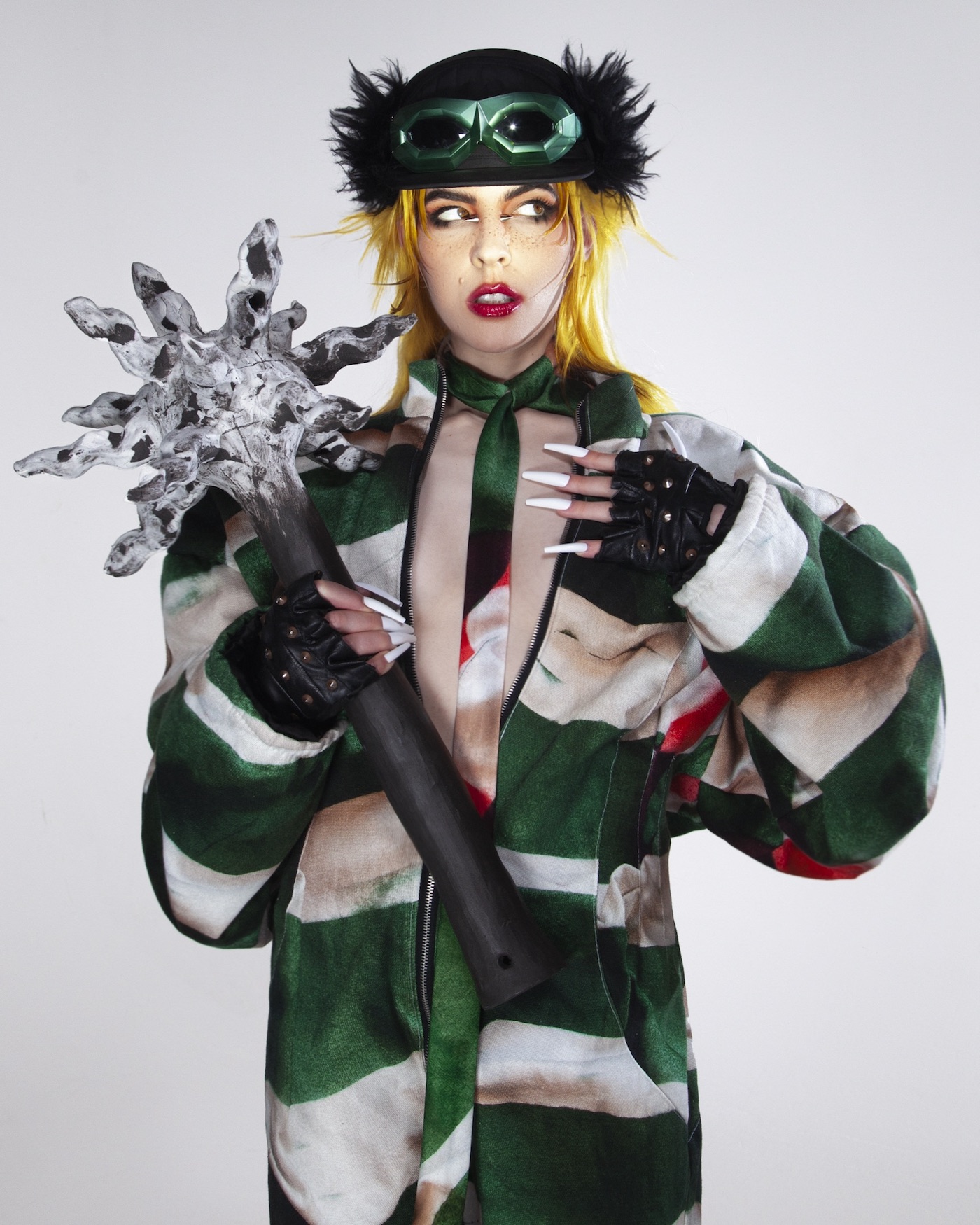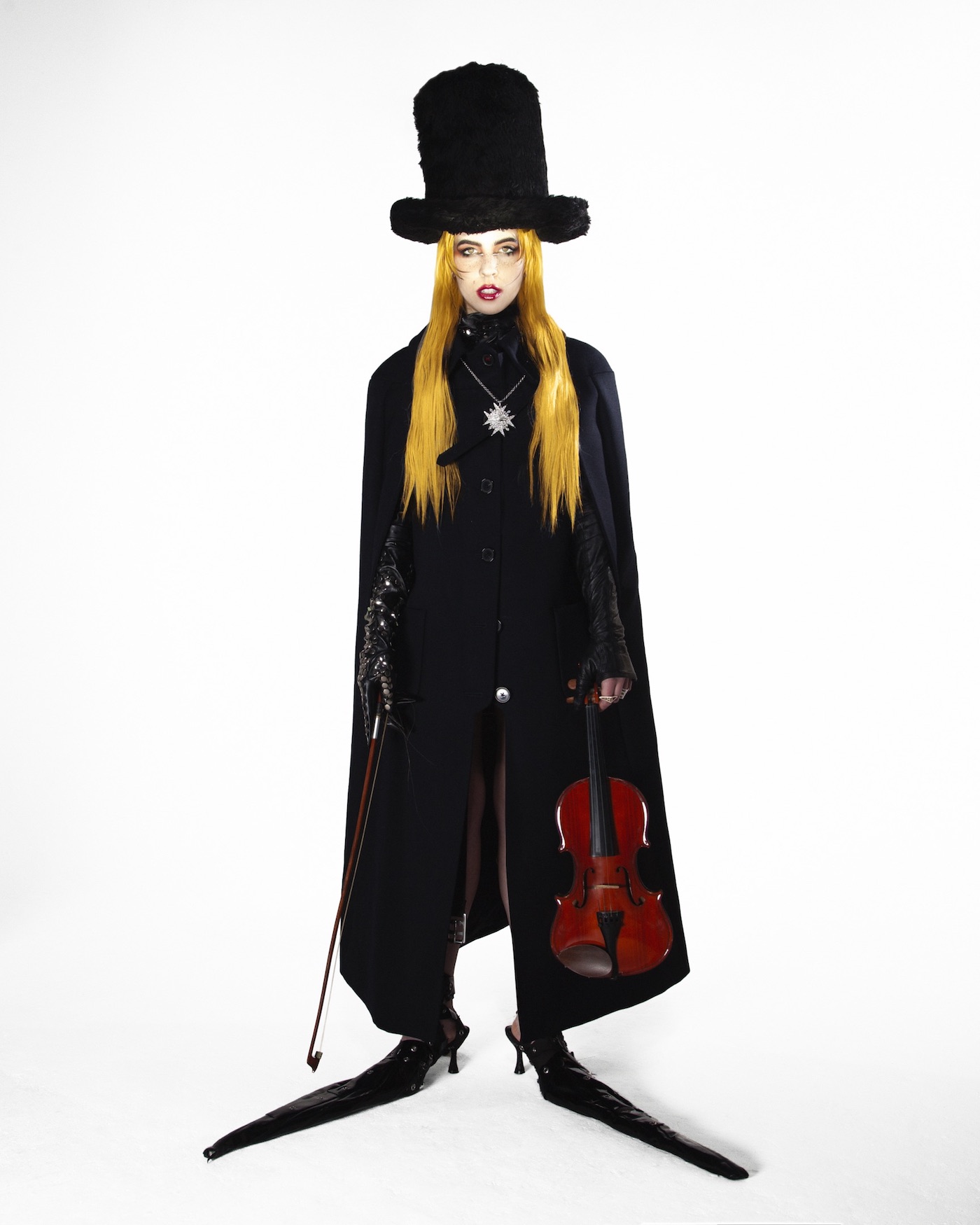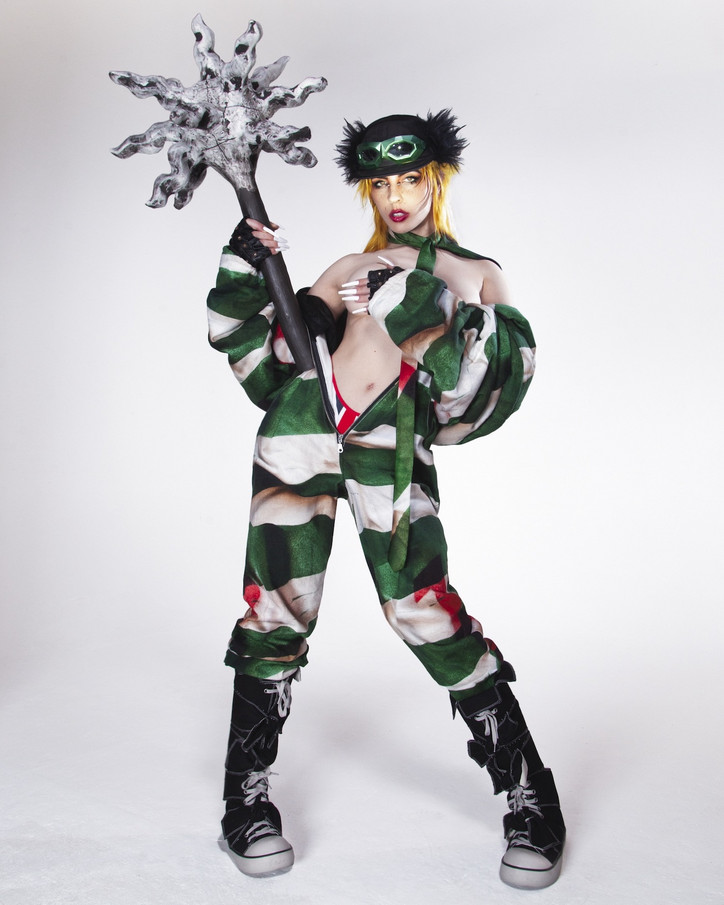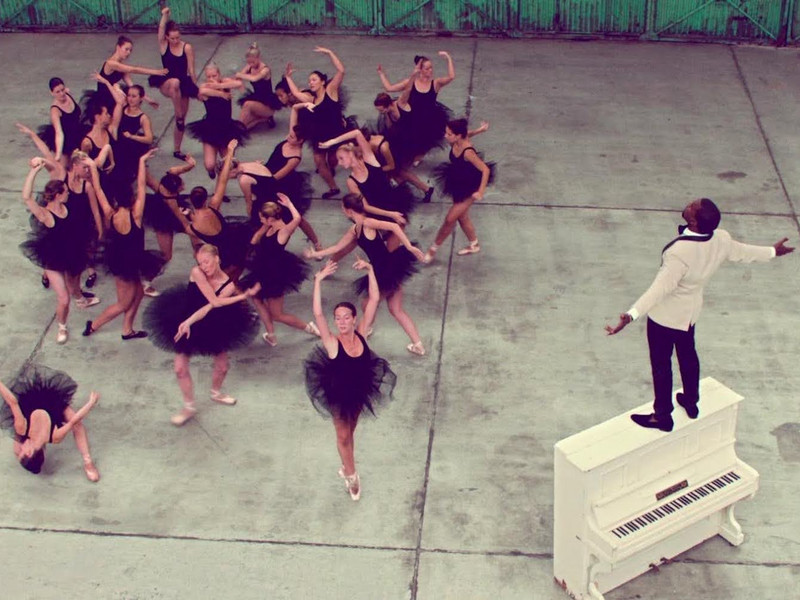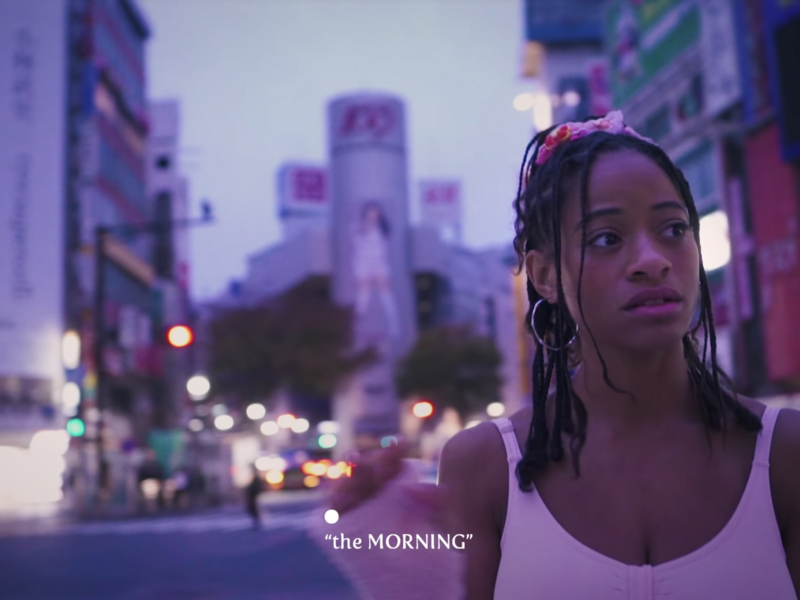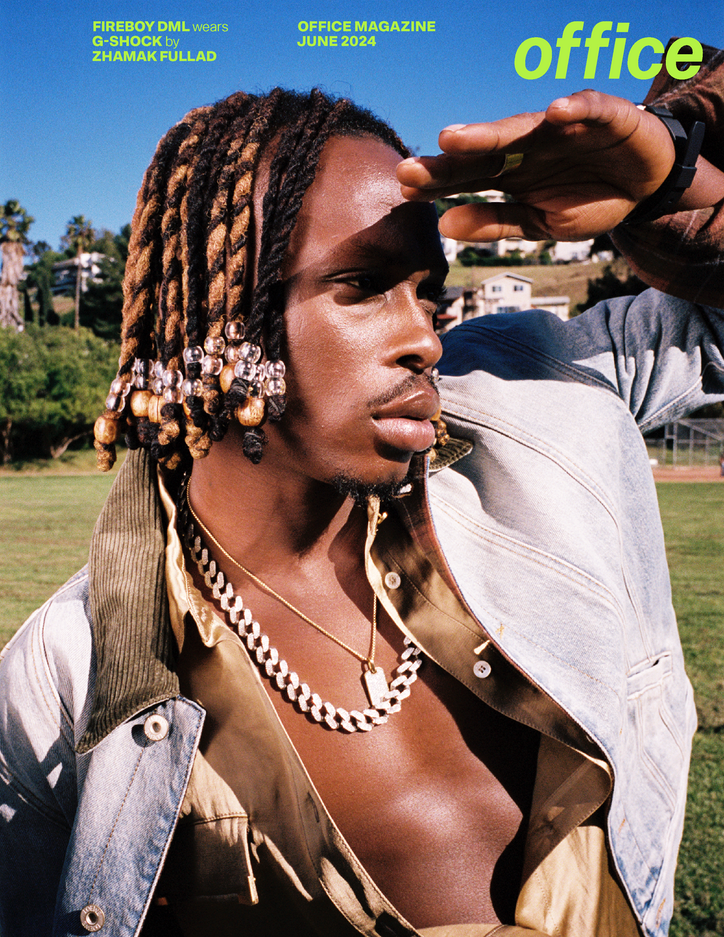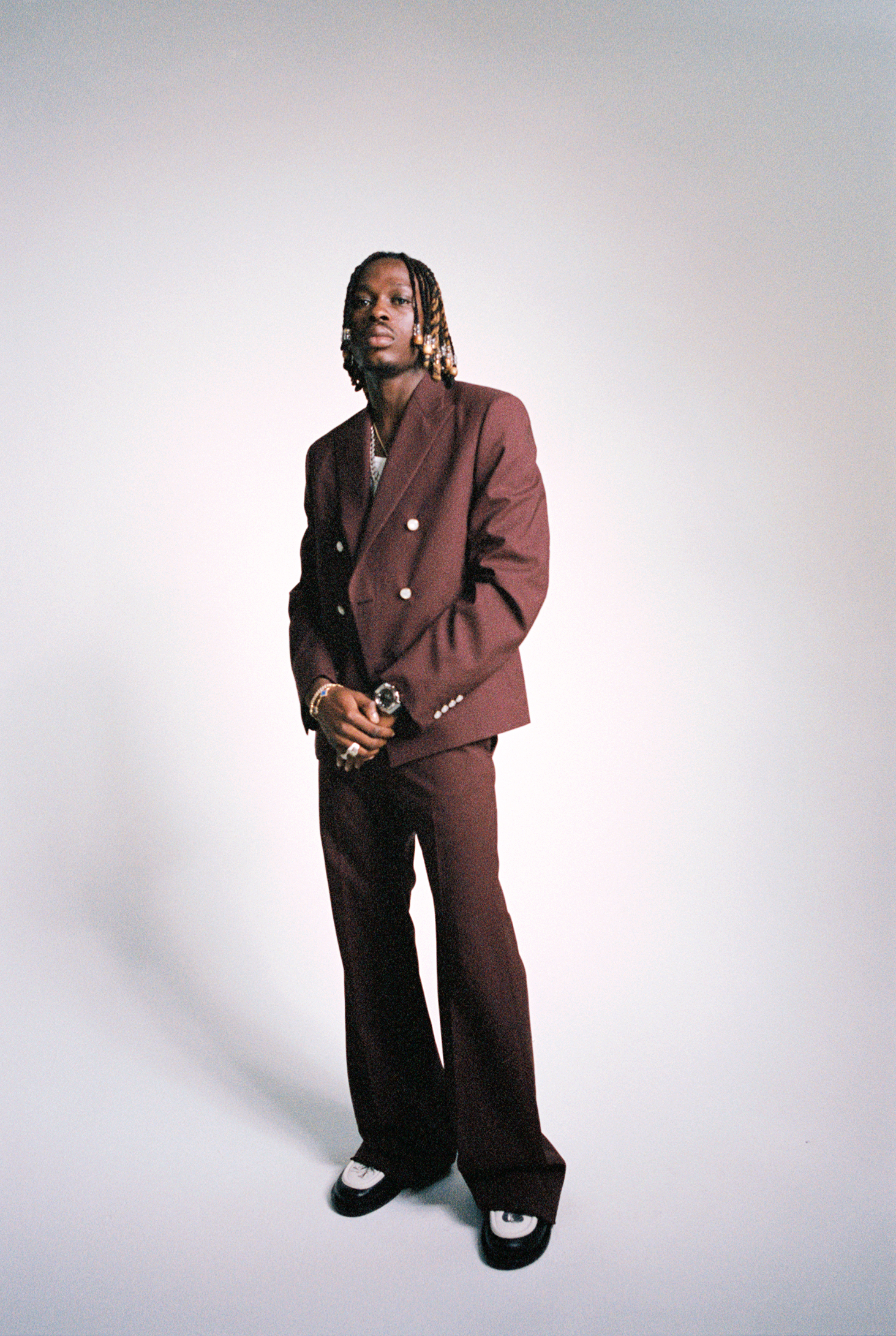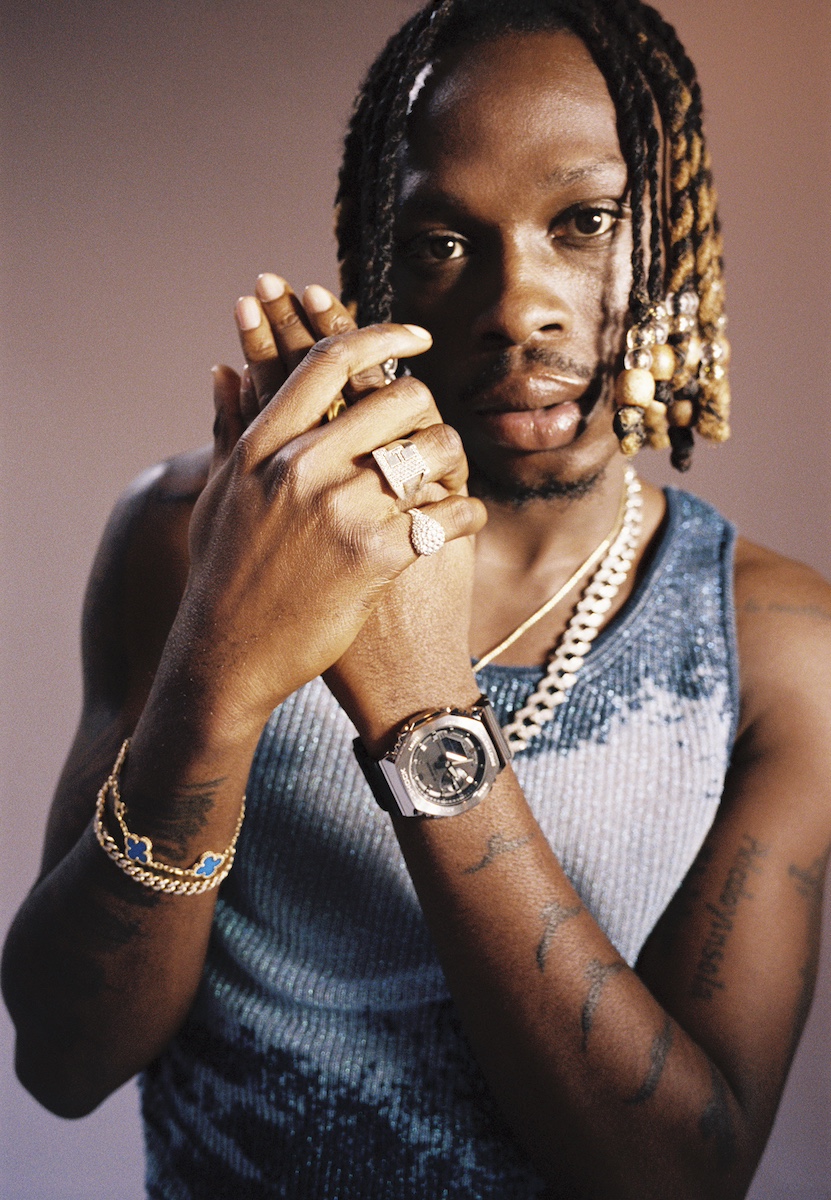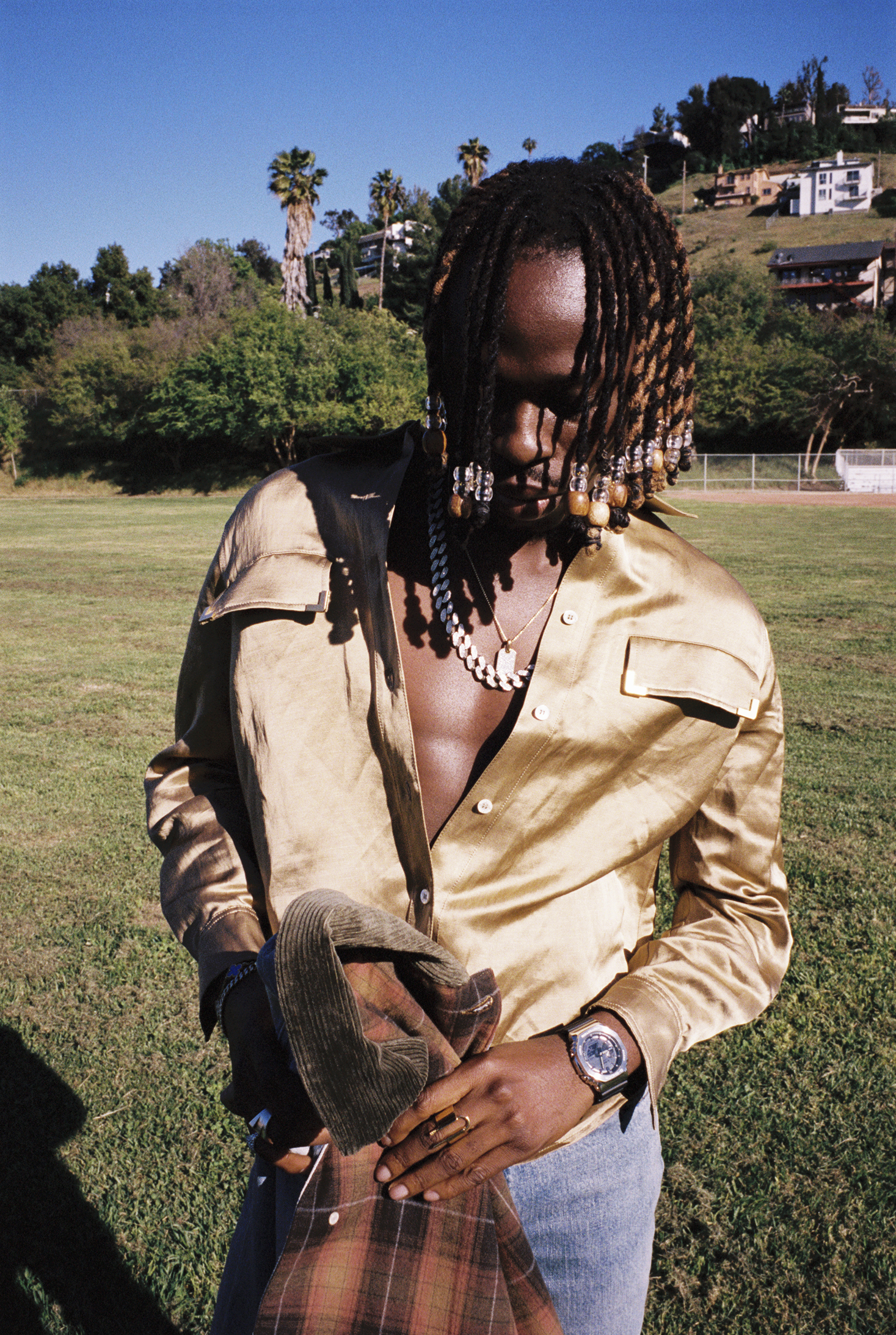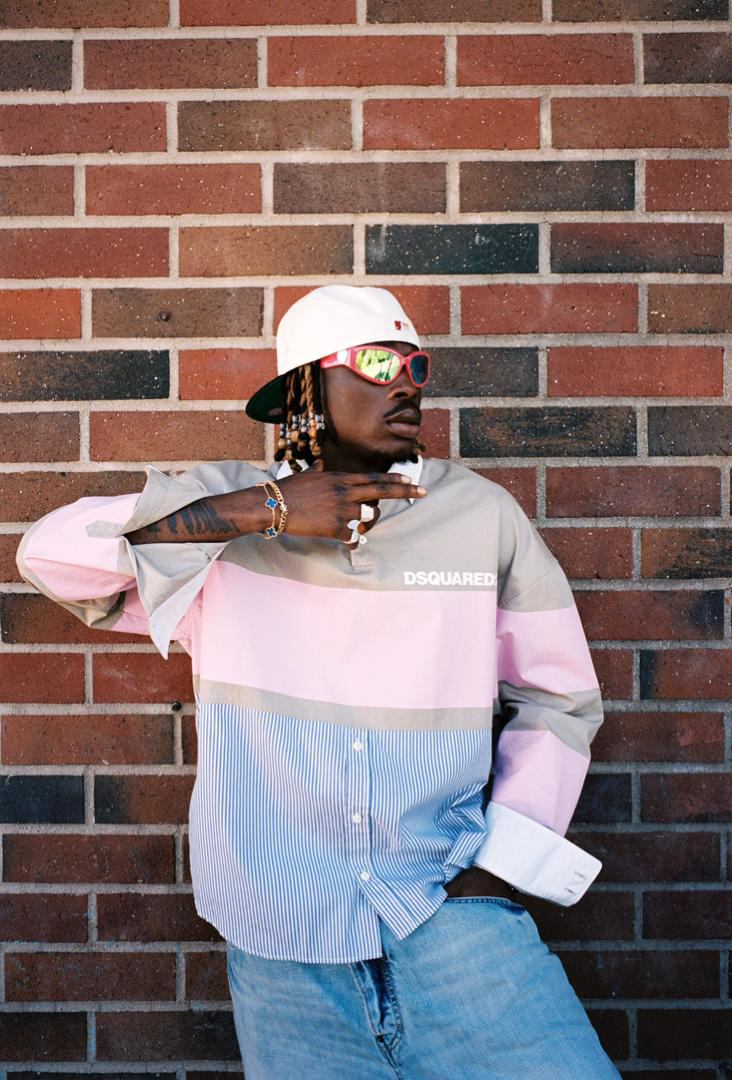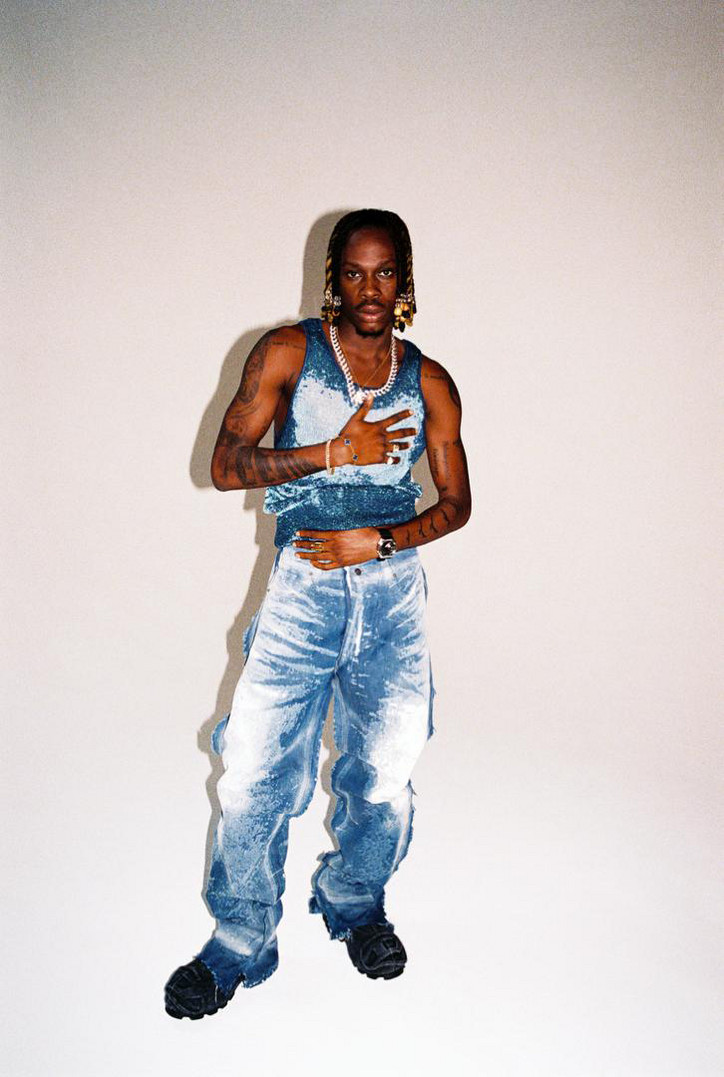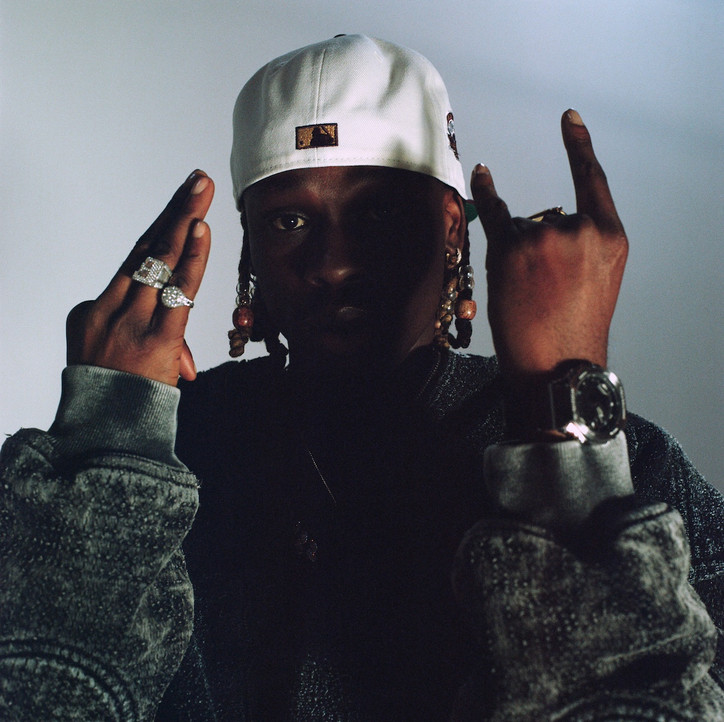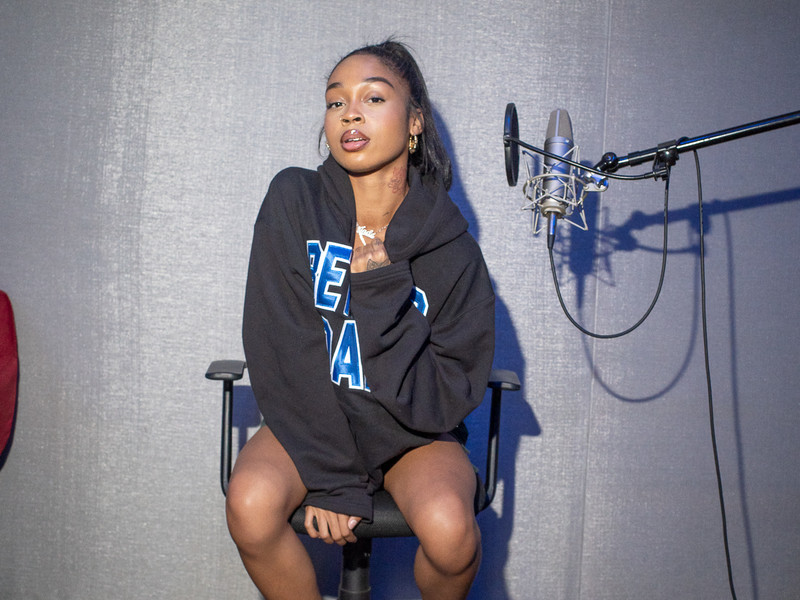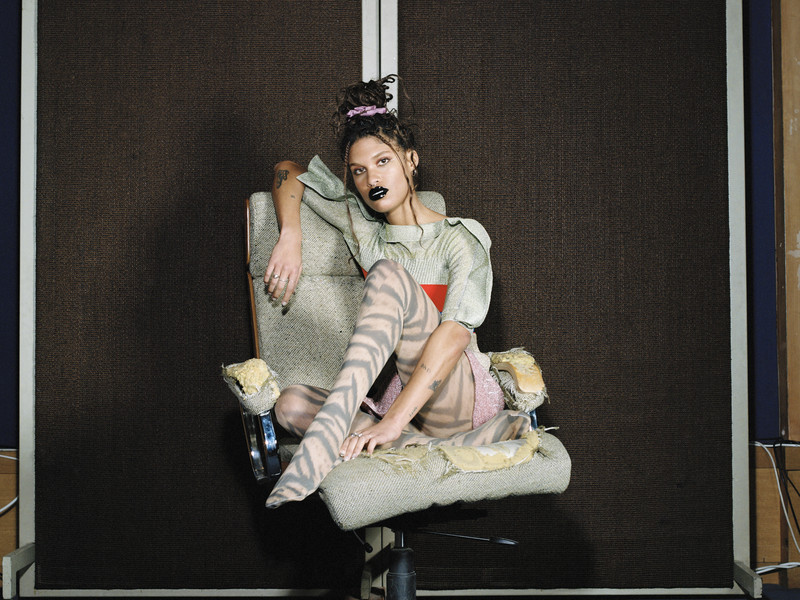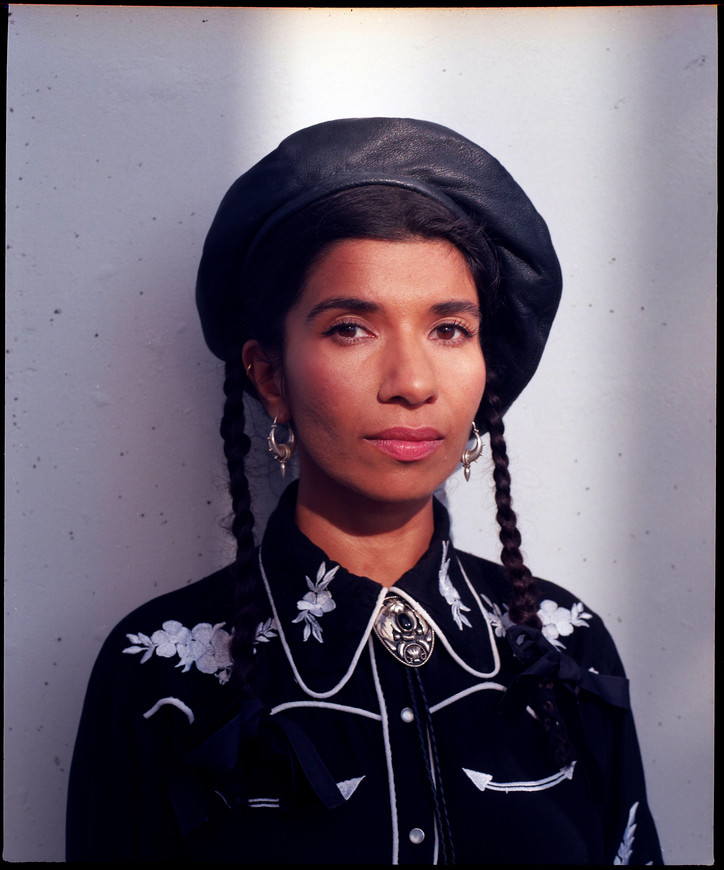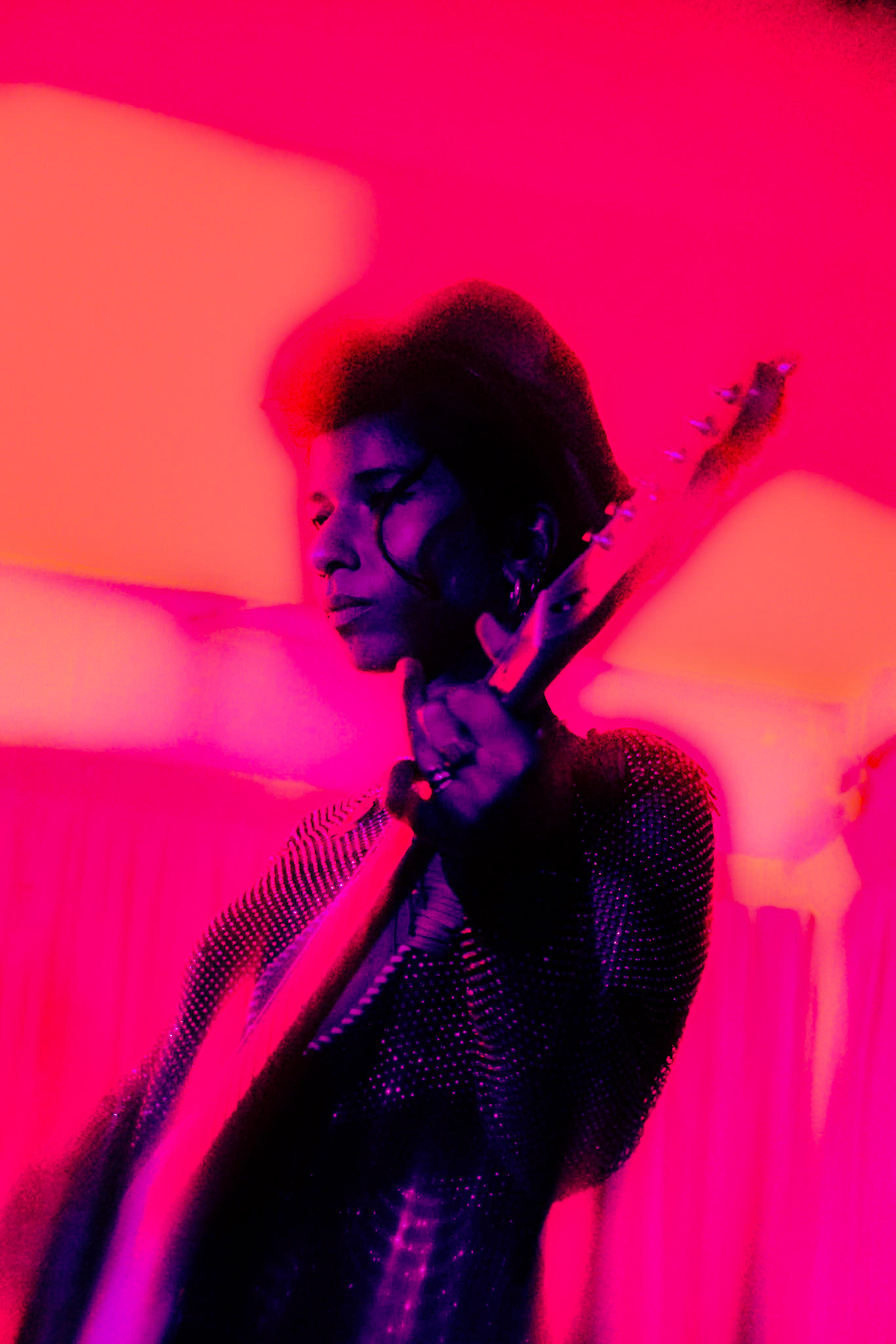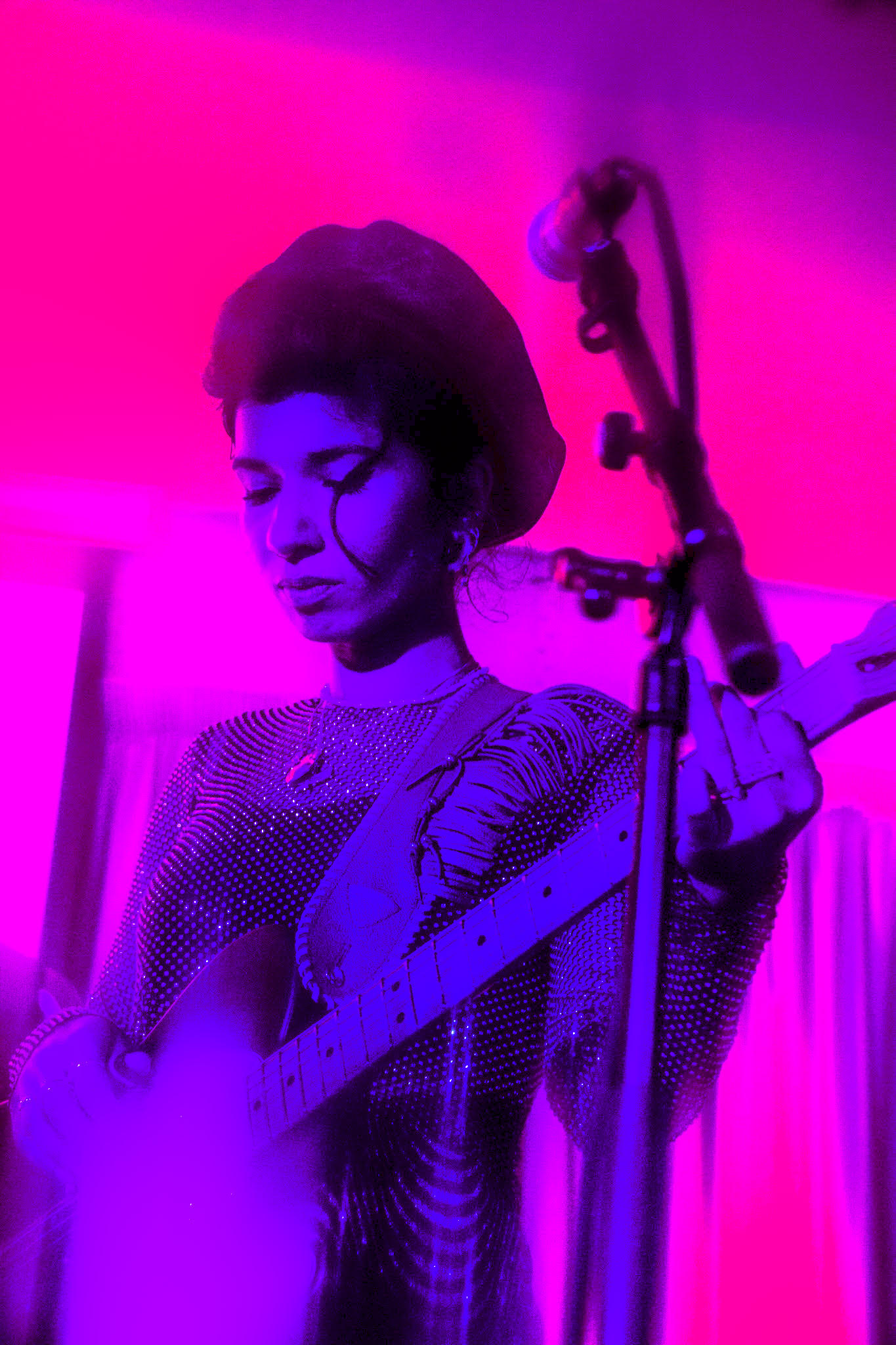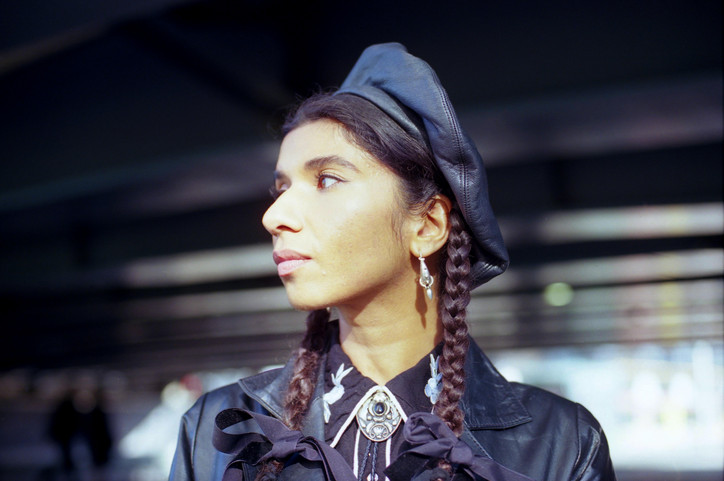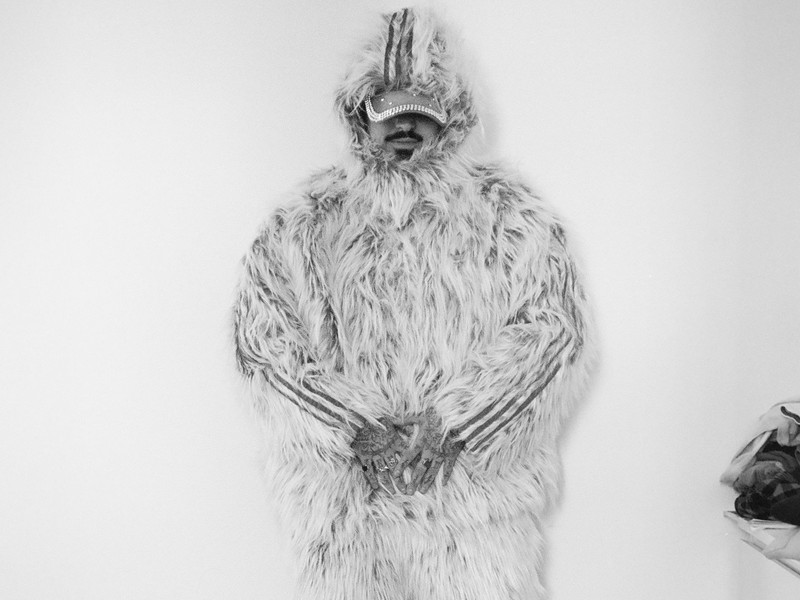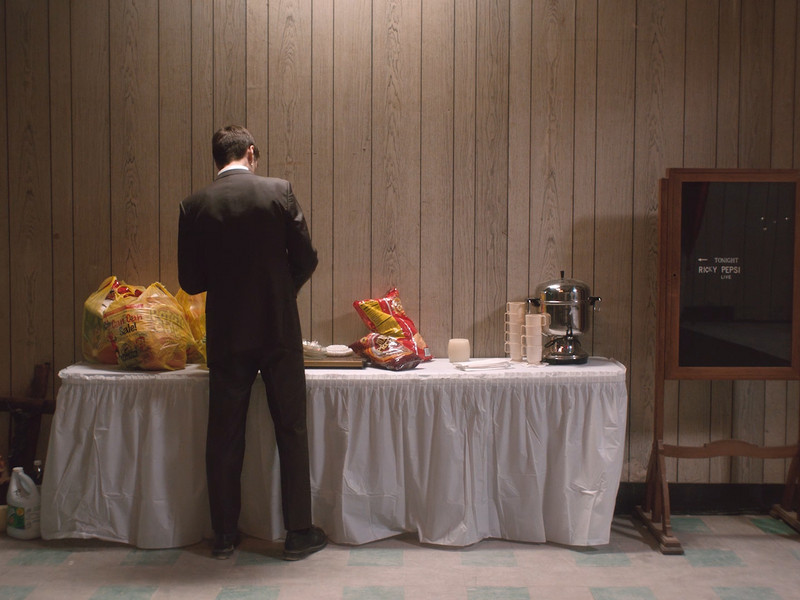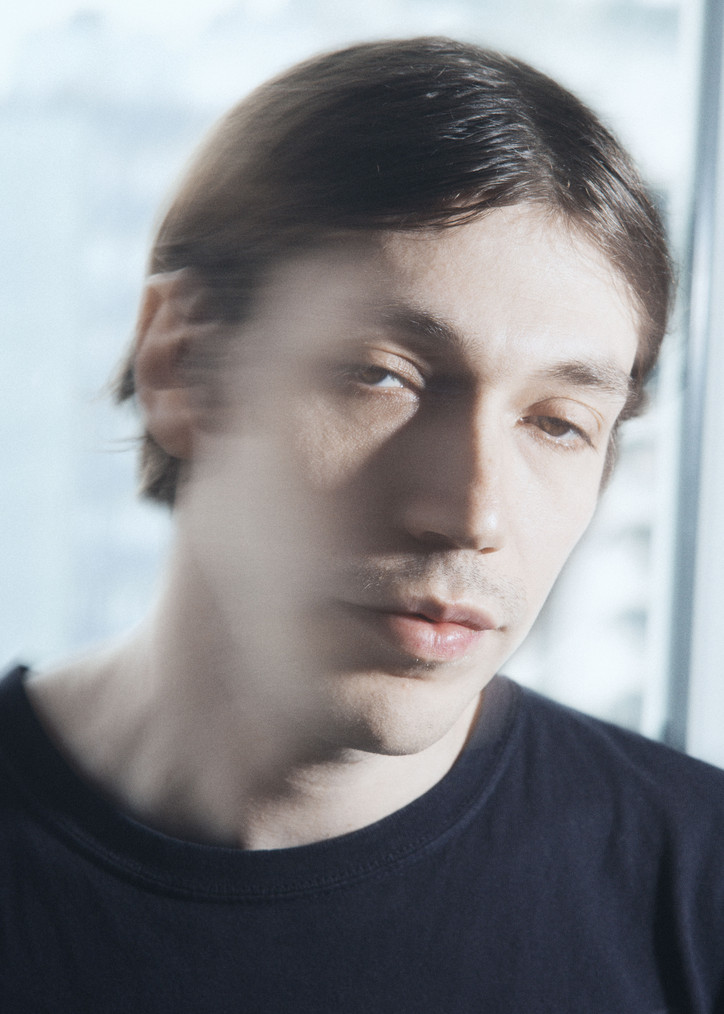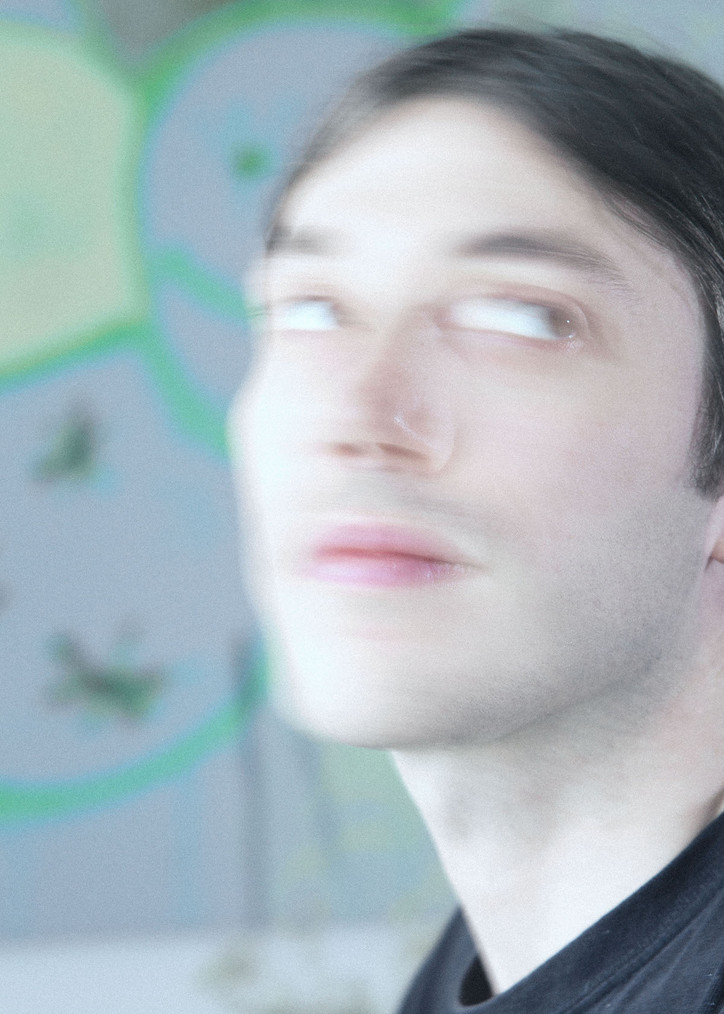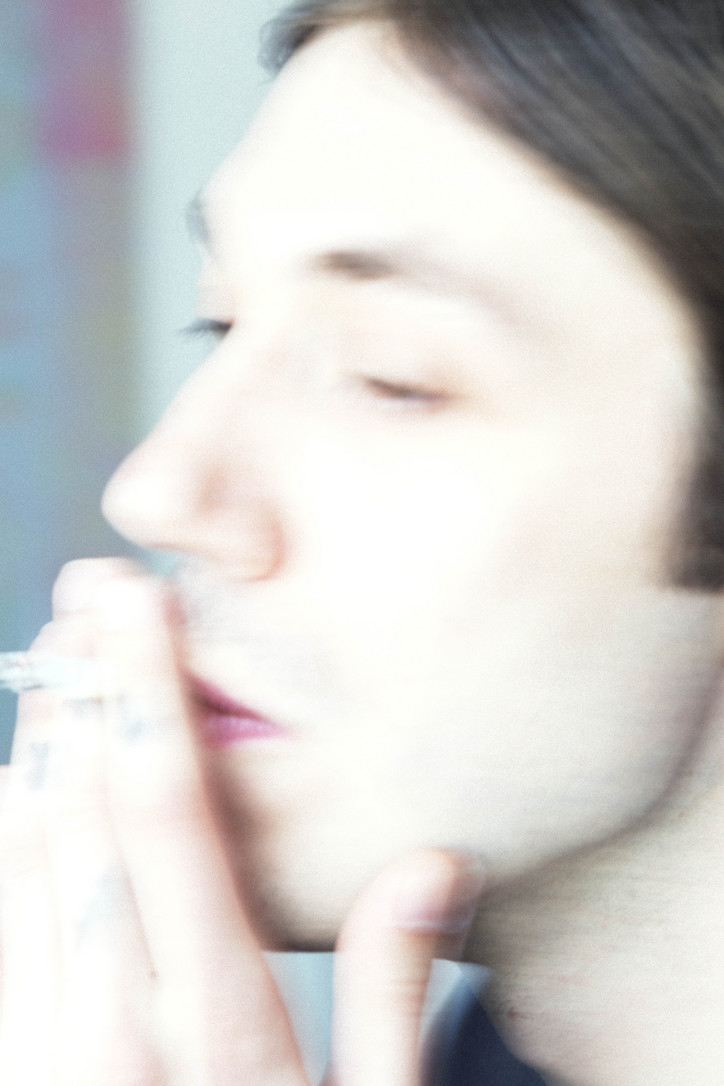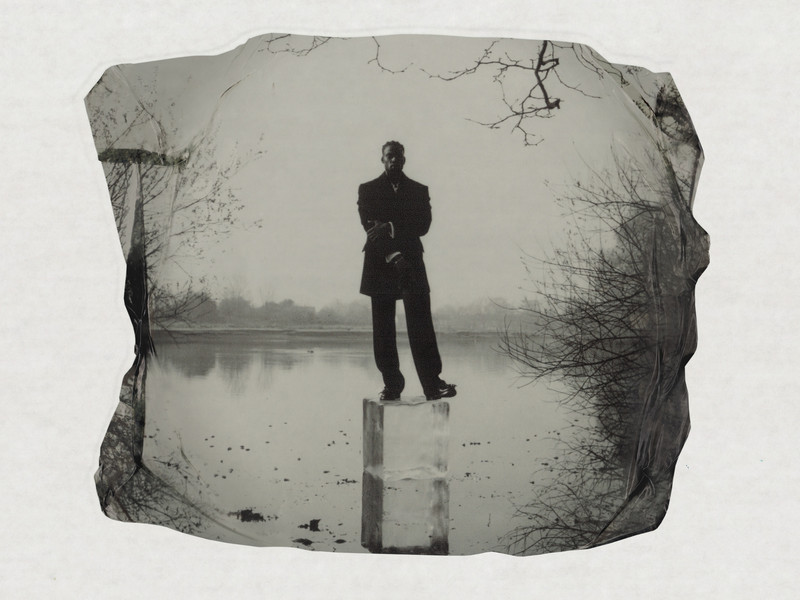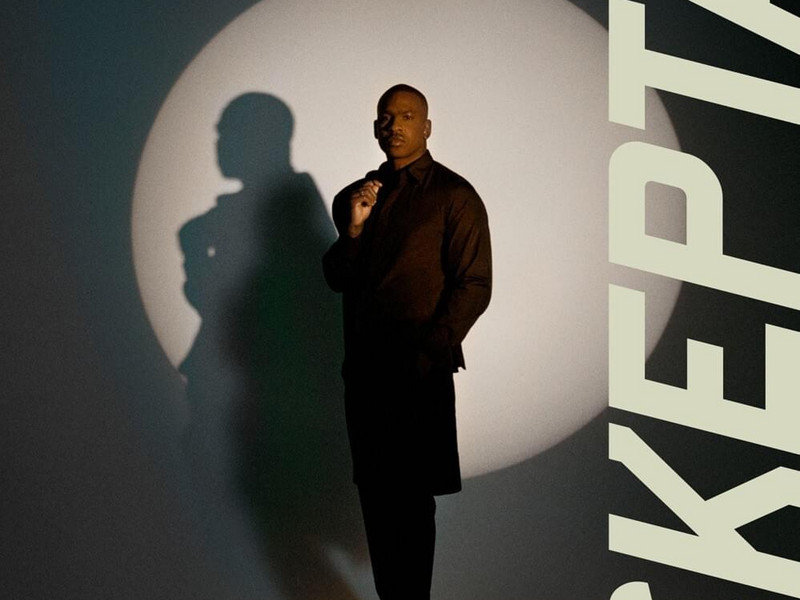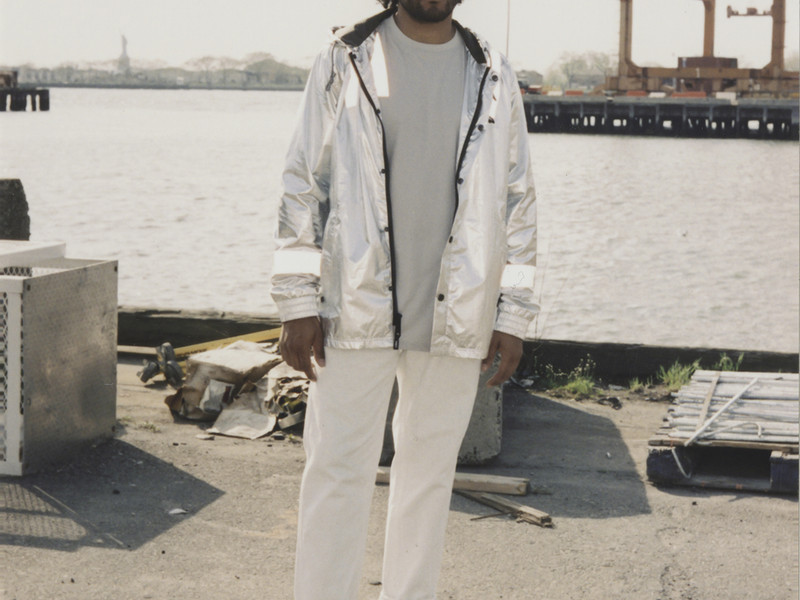Dorian Electra Urges Blasphemy
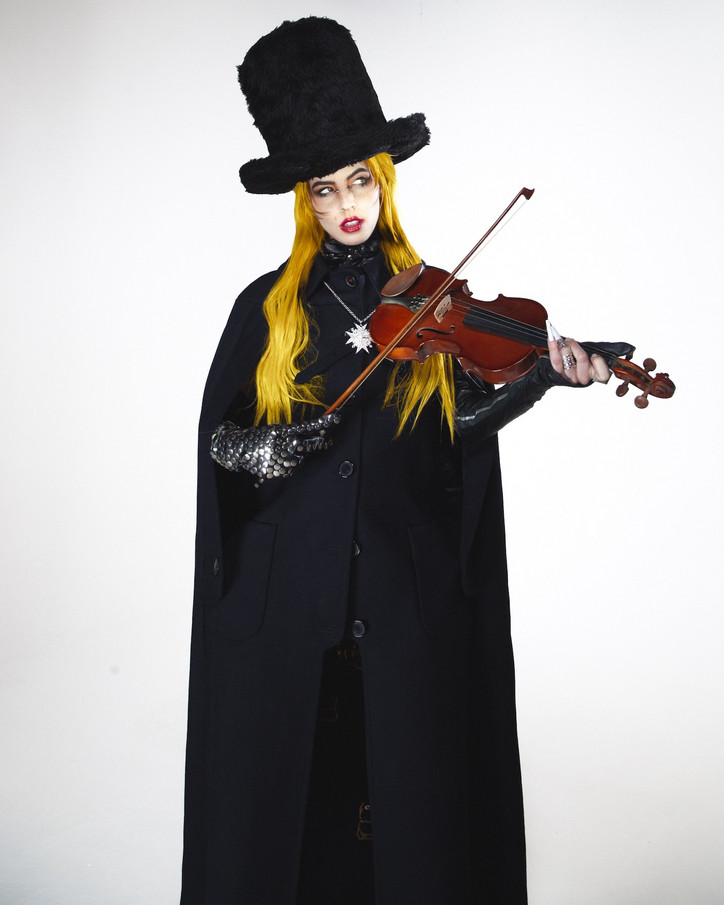
I’m a sucker for two things: Dadaism and queer religious wordplay. Orchestral and holy with grand musical swells that are ominous and evil in a hot kind of way, the album is absurdist and almost incomprehensible, but completely applicable to the modern age. Using Sanrio characters to try and commodify abolitionist movements, giving riot cops rainbow batons during pride month — it’s all useless, it’s all indicative of something extremely insidious, and the only thing we can do about it is “fill condoms with hot sauce” and party. We go everywhere in our convo — from guillotines and opera-singing clowns, to theater kids, Marx, the exhausting concept of the “it-girl” and the fact that everyone who wants to be famous can.
OFFICE— How was the LA show?
Dorian Electra— It was crazy. Honestly, we’ve been planning it for so many months, I couldn’t believe it was actually happening. I was realizing like, “Damn, I probably should have told the tour manager that they might’ve gotten more than they bargained for!” [laughs] Because it was like managing a rock opera. We were like, “Ok, there’s the opera-singing clown but he’s unreachable by phone. And when’s the guillotine coming in?” We had to coordinate this illusion, and I definitely thrive on that huge production chaos. I like having a hand in every moving part, even though it’s exhausting, I guess I love doing it.
I can’t tell if you were being sarcastic — was there actually a clown?
Yes! And a guillotine! I’ll have to send you some videos, but we had a sad clown who came out and sang Pagliacci. And then, at the end of my song “Yes Man,” I got my head chopped off by a guillotine and we had a prop fake head. It was very Les Mis, very musical theater. Opera vibes. We had a trumpet player, trombone player, drummer, guitarist, four dancers who did a tap dancing routine — the whole fucking thing. We went in.
What made you want to do such a big production? Because from the sonic aesthetics of the album, the visuals, and what I’m hearing about the show, it all seems a different from what you were doing back in 2020.
2020 was very digital, that year’s album was crafted during COVID. I shot all of the videos at home. It was very online because that’s what the era was. First, it was the only thing we could physically do. Second, it just reflected the vibe of the time. I feel like people got really used to the small, bedroom pop artists. But now, I want to see big, over-the-top, huge productions. Obviously there’s Taylor Swift and Beyonce’s tours being big cultural movements, but I just like seeing things over the top.
I feel like theater is actually really coming back, because people are tired of the fake, stripped down, online authenticity — because that’s also very transparently just another thing that’s being put on. Aeshtetically and conceptually, theater’s coming back. It’s the thing that’s uncool now that will be the next cool thing later. Because everyone that’s cool now — the majority of artists I talk to — they were theater kids. They just won’t admit it because they think it’s cringe. But if you actually think about it, all the coolest people did theater as a kid and are just too scared to come out of the closet as theater kids. So my contrarian opinion is that theater is the next cool thing. But we’ll have to find out.
I mean, I was a theater kid in highschool.
There we go! The proof is right here, everybody!
Like everything — there’s a spectrum. Some of the best people I know came out of theater, but so did some of the absolute worst people I know. Either way, I’m excited for shows to stop being a dude with a guitar. Some music lends itself to that. I can’t imagine Elliot Smith having a whole marching band, but I’m glad people are realizing that it’s cool to have a whole production. I think that’s something that people have really missed.
And to me, as a live musician, you have to compete with TikTok, you have to compete with online pornography, you have to compete with the endless neurological stimulation being offered to people at their fingertips anytime they want. So why should I just stand up there and sing my songs when anyone can stream them? I want you to actually feel something from physically being there. And since we weren’t able to physically be there for so long, now it’s more important than ever. And we’re going into a recession, so people aren’t going to be buying tickets to the artists they think are boring. So you gotta do something! You gotta make something special for people.
So Fanfare, congratulations on the release. You say it’s about the parasocial relationship between fans and pop culture. What was the first fandom you were a part of?
I was a really big fan of this UK band, The Horrors. And I made online friends through that. I was really inspired by their Victorian goth mod style, so I started going to thrift stores, getting more into fashion. I started making my own music videos, but to their music. And then I started making music on Garage Band. I wanted to play around with stuff and they really inspired me. And I feel like that’s the positive part of fandom — when it can connect you to people, connect you to a community, and inspire you to make work of your own. That’s really cool. But obviously there’s a dark side too.
Yeah, I grew up on Tumblr. I remember reading this thing where these fans were so mad about how this show ended that they sent the writers cupcakes filled with glass. It doesn't sound like you were doing that, so that's cool.
Oh my god. What the fuck! No, I was not doing that. I was, however, standing outside the tour bus at noon, giving them presents. But nothing destructive like that. But I can see how people could get to that level though, where they don’t even think that what they’re doing is wrong, because they don’t even view the celebrity as a real person. The artist just exists for their entertainment — their pleasure or pain or whatever.
And for their consumption. It’s like, if you do something that I don’t like, then it’s not my responsibility to take it and roll with it. It’s actually your fault. And therefore you’re getting the glass cupcakes.
[Nodding solemnly] You’re getting the glass cupcakes.
What was social media when you were growing up? Because there’s obviously a difference between growing up on MySpace, Tumblr, and now, Tiktok.
I guess MySpace was kind of the first thing, and it was cool that MySpace was so music focused, because it was very easy for a band to start a music page. And even when people started using Facebook more, people would still use their MySpace page for their band, saying, “Here, listen to our demos and see about our upcoming shows.” It was a website for your music, you know? But Facebook played a really big part in creating events, adding as many friends as possible so that you could get people to come to your party or show or whatever. That was a big thing.
And then YouTube was the other big one — uploading videos to Youtube and seeing them have an audience — that was really cool. I loved learning how to edit on iMovie. I know it’s not really a social platform, but, I didn’t have a Macbook — but my friend did, so I’d use her computer to figure out how to use iMovie and GarageBand. And then eventually I got one on my own, and that was huge. I mean, before we had that DV tape camera that I borrowed from my dad, we would film all of our videos in the PhotoBooth app, and we’d be holding the laptop at crazy angles, hoping we wouldn’t drop it.
I feel like people are trying recreate that now, but with iPhone technology and really nice cameras, and it’s coming off really disingenuous. There’s all this nostalgia for the 2000s, real DIY shit, but the spirit isn’t there anymore. It’s just for the aesthetics. There’s this app that was big a couple of years ago, where you could make photos look like disposable camera photos, do you remember that?
Yes!
How is internet fame treating you?
It’s really interesting, because it’s mostly been really good for me and I’m very grateful. Back when I started first putting out music, with my song "Career Boy" in 2018, it was super validating for me as an artist, as a person, for my gender identity — all that stuff. And then to see the community grow during COVID, connect with people, that was all really cool. But I also saw the toxic stuff. I mean, I hate the word “toxic” because it’s so overused, but it’s kind of the easiest way to get at what I’m saying, which is, when there is a fandom that’s built around being obsessed with one person, it’s this love-hate relationship, where you love the person and they can do no wrong, and then when they eventually do wrong, and it’s the worst fucking thing in the world. As a fan, that person goes from angel to devil. And to see that, to see certain people go from being uncomfortably obsessed with me, to uncomfortably hating me and trying to take me down — it’s just so weird to watch that psychological change happen. And I was like, “This is so unhealthy for everyone!”
It was really affecting my mental health. And sure, it might’ve been a few comments — it might have been ten comments, but imagine if it was ten people coming up to you and saying really hurtful shit. Our brains are wired to be social animals, so it’s hard to dissociate from ten comments, even if they are a bunch of strangers who most likely are not mentally well. And I do try to take that into account and be empathetic and not hold it against them, but it still hurts. And because of COVID, the online social dynamics were magnified because so much was happening constantly, and we were always online. So that’s when I really took a step away from my fans. I could tell that a lot of these people had a lot of growing up to do, and I hoped that they could move past this. And then they did. Some people left the fandom, some remained, but I hope it’s been a healthier vibe.
I can imagine that. Honestly, I don’t even have to imagine, we both know that internet fame can be very culty, in the ways where you feel so devoted to someone, but also in the way where that blind faith is dangerous. As soon as someone who loves you so much feels like you’ve betrayed them, that’s when it gets scary. There are all those celebrity stalkers, and stuff like that. And that double-edged sword, those highs and lows — those are really reflected in the album. There are very high, orchestral swells, almost religious vibes, but there are also really ominous, spooky, creepy parts of the music where it feels a little evil.
Definitely. I’m drawn toward the darker things, or the villain’s perspective. My song, “Yes Man” — you don’t have to be an artist to relate to it, because it’s about being surrounded by people who are yes men, who agree with you, who don’t really challenge you. And then the people who do challenge you, you push them away, and by the end of it, you’re left alone and thinking, “Why am I not intellectually stimulated?” And you realize you’ve pushed away everyone that was challenging you. Being an artist, you’re friends with everyone that basically works for you. You’re on tour and you’re spending time with people that are technically on your payroll. It’s not the healthiest. It’s not an equal power dynamic. When it’s all mediated by financial relationships, of course people are going to treat you a certain way. But it becomes comfortable to you. And you see all these celebrities who just start acting totally fucking wack and horrible because they can fire anyone they want, anyone they don’t like.
But the album isn’t just about fame, in that sense. Gaga or Bowie, those albums are about a rock star or popstar’s perspective. And as inspired as I was by those traditions of making music about fame, the fame I’m talking about is something that’s relatable to everybody. Because it doesn’t matter if you have 200 followers on Instagram, we’re all putting out a public persona that people interact with in a way that’s detached from your actual self. I think we all experience fame, as the whole ‘niche internet microcelebrity’ thing, especially in New York.
And that comes off your song, “Wanna Be A Star.” There’s such an oversaturation of celebrities — there’s a new famous person every day. Being famous used to get you on Ellen, but now it just gets you fired from a job.
You bring up niche internet micro-whatevers, everyone wants to be that. And I forget who, but there was a publication that put out a list of “it girls…” and it was just a bunch of white women.
I’m thinking of my friend Taylor Lorenz’s book, Extremely Online, and she talks about this website where socialites could get ranked — it was clout before the word was coined. But people would go every day and refresh the thing to see the ranking and see the top 20 people or some shit. Nowadays, everyone wants to be a star, whether you want to be dimes square podcaster, indie darling, it girl, fucking whatever, you know? And you can’t blame the individuals, because it’s our culture. I mean, I want to be a star, obviously. That’s why I’m pursuing music and doing interviews and shit — I’m a part of that system, I’m a part of that culture. And it’s weird, because I was wondering if I can even question it. But God, it’s so superficial and shallow! So much of the work I do is in service of me and my image. Later today, I’m doing a photoshoot for my merch that’s gonna be me wearing a bunch of shit that has my face on it, trying to make more money so I can make more music videos.
I’m not even saying that’s evil. It’s just weird that our cultural values tell you, from the time you grow up, that being famous is better than not being famous, and that it means you’re making more of an impact, that you’re living a more meaningful life. I was at this Hollywood cemetery today — it’s a cemetery for famous people, like Judy Garland and Johnny Ramone are there — and I saw this one thing that read “Touched the hearts of many.”
It’s the “DM for list” version of a cemetery.
Literally! And what about the teachers, or nurses, or the people who do actually touch people but not in a very visible way? Culturally, especially in America, we don’t value community service, we value fame and visibility. So, “Wanna Be A Star” was just me analyzing that both culturally and personally, like, “Where did that [desire for fame] come from?” I know my parents wanted me to be a rockstar — they named me Dorian Electra! It's not even a stage name. Electra is my middle name! My dad wanted to be in a band, but he couldn’t make that happen for himself, so he just wanted me to be that. It’s cool, I have an amazing relationship with both my parents. But it is weird to think about, how a cultural value gets implanted in you. Where does that come from? And why does everyone want to be famous? Even doctors today have to have TikToks!
Those chiropractors on TikTok who crack people’s backs on camera, those cooks who are trying to be really sexy in weird ways, spanking dough or whatever — I will say, wanting your kid to be famous, that feels like such an American thing. Both my parents are from the Philippines, and when I told them I wanted to go into writing, they were like “Oh, so no law career?” A lot of that has to do with American individualism.
Totally. That’s why you see all those questionnaires of what kids what to be when they grow up, and in America it’s always vlogger or youtube. And everywhere else, it’s like, astronaut or veterinarian. Those are old school ones. When I was growing up, all the kids would say they wanted to be vets, but I was in kindergarten saying that I wanted to be a Broadway actor.
It’s super interesting. Especially in New York, coming off of Fashion Week, which is where we both met, that hunger for fame is more on display than ever. It’s a parade of that ritual.
Oh my god. It was obscene. Remember the video that went viral of that lady trying to get into that party?
That was the day I had COVID. There were like two days when I was out from COVID, and then I left town. But no, I do remember that video. That shit was crazy. What was that Gaultier?
It was Interview Mag I think. And the scarier thing is that people got clout from saying that they were there! Posting the video and being like, “Oh yeah, no big deal but I was there at this viral moment, I was inside the party that that Canadian influencer threw a fit because she couldn’t get into.” It’s so gross.
This is funny, because I do love all the fashion stuff. I think clothes are cool. And I do love all the creativity that surrounds a fashion show, I wish that I could direct a fashion show, because I have so many crazy ideas, just from having directed my own shows and music videos. But Fashion Week is just a big game, honestly — the game of the career, the game of fashion parties and having the right looks, it’s a big video game! I mean, I do love the genuine connections — I actually had a lot of really genuine connections with people and a lot of great conversations this past NYFW, but more often than not it’s just parading around trying to get your photo taken. But it’s part of the job, you know? For you and for me! It’s kind of fun! I like the glamour of it all — that’s fun. I guess I like to recognize it for what it is, which I think most people do, but they just don’t say it out loud.
Maybe they do, I don’t know. I think, for a lot of people who work in fashion, if they said that out loud, they’d lose their job.
That’s true. If anyone is reading this, please still invite me to your fashion shows. Please don’t blacklist me! [laughs].
Please don’t blacklist us!
Throughout the album, you have this tie between sex and religion, which is so interesting, especially when it’s this mirroring of queer sex and religion, when queerness has been so demonized by religious institutions. I wanted to talk about that. You have these lines, like “Everything I do is a porno,” “Fulfill me up like a prophecy, put the fear of God in me.” Is that about being famous? Because if you’re famous, everything you do is both religious and pornographic at the same time.
You know, I hadn't honestly thought about it in that particular way, but when you said it out loud, absolutely, yes, that is correct. That's a really good interpretation of it. Obviously, religious imagery was coming in and out of style, but then we had people like Madonna, Gaga, and then Lil Nas X. But, fandom is the new religion, especially under capitalism, where people naturally seek community and seek something bigger to be connected to, for a sense of meaning and purpose in their lives. For me, I really found that in fandom. I see a lot of people finding that in fandom, going to a concert, having that transcendent experience that connects you to something greater than yourself. And that’s really convenient for capitalism, because with Taylor Swift and Beyonce and all these A-listers, these things are the most money-making tours of history. You can make a shit ton of money off of people wanting to be connected. Religion and power and money have always been interconnected. You know, it used to be that the church could make more money, and now, musicians under capitalism are making the money. We’re not under feudalism anymore. It’s kind of Marxian materialism — I don’t know too much, I ain’t like that.
I mean, materialism is just a way of looking at history and understanding history as a series of power struggles over material conditions — sorry, I just got out of a midterm. But, fandom being the new religion because it works really well under capitalism — that’s definitely a Marxian idea. Because also, sex sells more than religion now. You have that line, “50 Shades of Grey bigger than the Bible.”
I hope you pass that midterm because you’re slaying to me. And that’s a true statistic! Count Baldor came up with that particular lyric, and that song, “Manmade Horrors” was so fun to write. But it was also really hard, because we had all these other lines — me, Weston Allen, and Cecile Believe — we were all trying to get the last line because it had to rhyme with this particular thing, and it was the end of the chorus and finally landed on “Got a Che Guevara shirt from Zara on sale.” But “Manmade Horrors” is, lyrically, probably one of my favorites on the album, just for how stupid it goes with the dumbass references of the crazy shit you actually see under capitalism. Because no, we don’t need to pollute the earth for another Minion-themed sex toy or whatever, but here we are and I kinda love it but it’s also horrifying.
I was gonna ask, no way you actually saw a Che Guevara shirt at Zara? I know it’s not too far off but…
I didn’t see a Che Guevara shirt at Zara, but I’m pretty sure I’ve seen Che shirts at Hot Topic. I don’t know. Wait, you have to check out one of the new pieces of my merch! [gets off camera and comes back grinning ear-to-ear, holding a shirt with a photo of them remaking the infamous Che Guevara photo].
I think he would’ve gotten a kick out of that.
Oh yeah, he totally would’ve loved it [laughs]. No, he would’ve shot me right in the face.
I was in class and we were watching this documentary on Che Guevara, and he was talking to this one political leader Lumumba who was like ‘I need to go into hiding, I can’t continue the decolonial project,’ and Che takes this dog that he found and gives it to Lumumba and is like ‘don’t abandon the little dog. The little dog is the decolonial project.’ I also could be totally wrong, I kinda zoned out during that documentary and the audio was already kinda hard to hear.
I can totally see that in a cutesy font embroidered on a little pillow and sold on Etsy. “Che Guevara shirt from Zara on sale” and a pillow that says “The little dog is the decolonial project.”
It’s like those shirts that are like “Why be racist, sexist, homophobic, when you can just be quiet?” made by kids in China and child labor.
Capitalism just subsumes everything. You can’t really fight it, but at least you can laugh at it. That’s a reflection of what I’ve seen in meme culture, and how Gen Z is coping with everything, calling it out and saying it for what it is, but also laughing at it — there’s this multi-layered irony and sincerity that goes into it, because at the end of the day, that’s all we can do to survive. Otherwise you just feel horrible all the time, and what’s the point of that?
We’re totally seeing a Dada revival, all that nonsensical shit, because originally, Dadaism first happened after the first World War when everyone was like “This is bleak. Nothing matters. Let’s make jokes that make no sense.” Really a postmodernist art form, because it comes from this dread inherent to capitalism and just knowing what’s up, knowing that it’s so much bigger than you and that you’re not gonna save the world tomorrow. There’s a sense of, “What else can we do other than party?” And you have this lyric talking about how much trash there is in the world, and then you’re like “That’s how you know it’s gonna be the best night of our lives.”
That was the monologue at the end of “Lifetime.” Generally, I’m very thought-out, with every lyric, but this time, I was like, “Let me try something, let me just get up on the mic and riff and see what happens” and I just started talking. That was the first take. I did six takes and none of them were as authentic as that one, and it’s literally true! That whole monologue was just my actual train of thought, and it perfectly encapsulates the way my mind — and probably a lot of other people’s minds work, and then I was like, “Oh shit, the end of the song is coming up, I need to say something epic, I can’t just keep talking about my compost bin and then that’s the end of it.” So I thought of this thing my friend and I do — it’ll be like, a regular Tuesday or whatever — and she’ll do a shot and be like, “To the best night of our lives.” So I said that.
The partying thing you said, about laughing through the horror and the pain and the dread, I think dread is the perfect word, especially when it comes to polluting the planet, because we know we’re a part of these systems— you learn that most recycling just gets put in the ocean or burned and pollutes the air. Everything is just a weird farce that’s all done for the visibility of it. But you can laugh at it, and that’s one way of coping.
If the world is ending it's like what else is there to do other than like have a party? It’s very bleak, but at least there’s good party music.
Speaking of, the next thing I’m working on is gonna be a sort of follow-up to this album, but it’s all gonna be party music, more club music, but similar themes. I want it to be sonically similar to some of the pop tracks, like “Sodom and Gomorrah” or “Puppet,” but I’m also experimenting with a lot of new genres that I haven’t really played before, going back to my childhood and early teens and the dance music that really inspired me, even before I could go to clubs and stuff.
I’m looking forward to it. When’s the next time you’re back in the city?
Ironically, Fashion Week!
